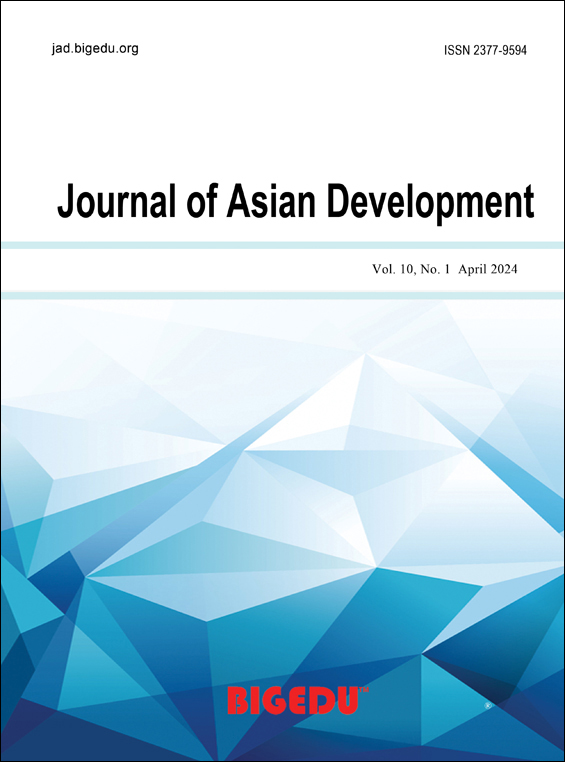The Impact of Corruption on Economic Growth in Nigeria
DOI:
https://doi.org/10.52941/jad.v7i2.24Abstract
This study empirically analyses the impact of corruption on economic growth in Nigeria, using time series data for the period 1980-2015 analyzed through the ARDL technique. The result of the Bound test confirmed the existence of Cointegration among the variables. The ARDL results revealed that corruption has a significant negative influence on economic growth both in the short run and long run. It was further confirmed that external debt, agricultural output, and human capital development positively impact growth while FDI and inflation rate endanger growth, in both the short and long run. The result of the interacting term revealed the damaging influence of corruption on the positive impact of human capital expenditure and external debt on economic growth. Based on the findings of the study, it is obvious that achievement of growth that is sustainable will remain elusive in a corrupt environment. The study, therefore recommends that government should strengthen the activities of the anti-corruption agencies in Nigeria to reduce the rate of corruption.
Downloads
Published
How to Cite
Issue
Section
License
Copyright (c) 2021 Muftau Olaiya Olarinde & Jacob Msonter Jonathan

This work is licensed under a Creative Commons Attribution 4.0 International License.
Copyrights of all articles published in Bigedu Foundation are retained by the authors, with first publication rights granted to the journal. The journal/publisher is not responsible for subsequent uses of the work.
All articles are published under the Creative Commons Attribution (CC-BY) license.
Authors have the rights to reuse, republish, archive, and distribute their own articles after publication, and undertake to permit others to distribute, remix, adapt, and build upon this work non-commercially provided the original work is properly cited. The full guidance that applies to the CC-BY license can be found at http://creativecommons.org/licenses/by/4.0/







